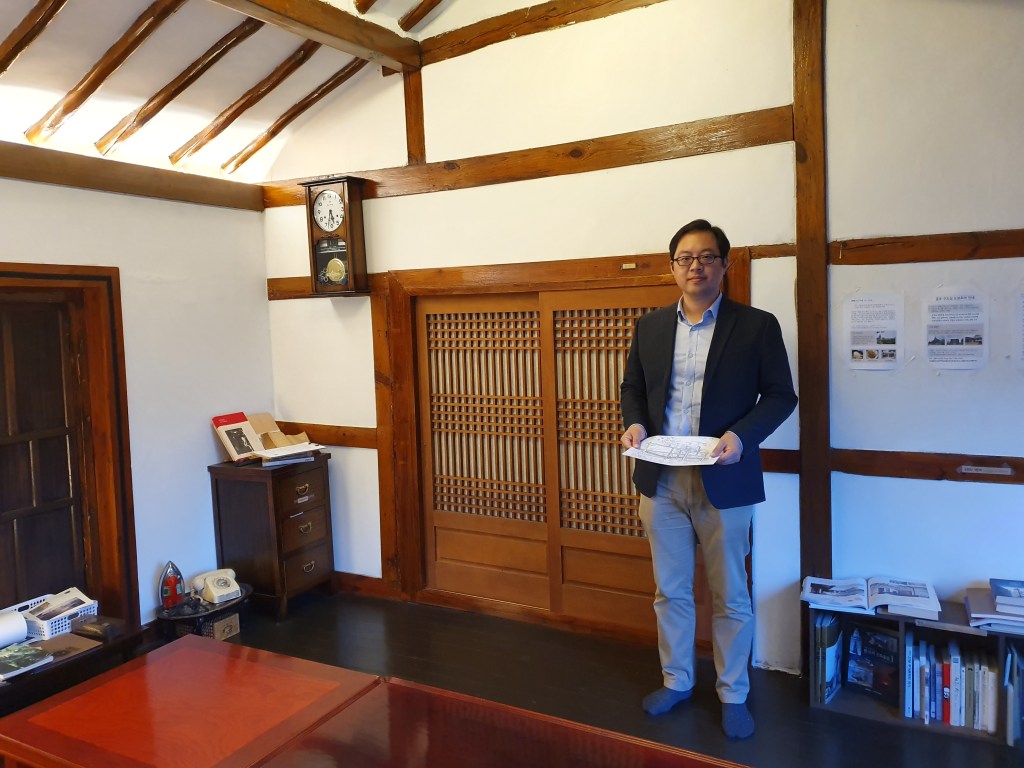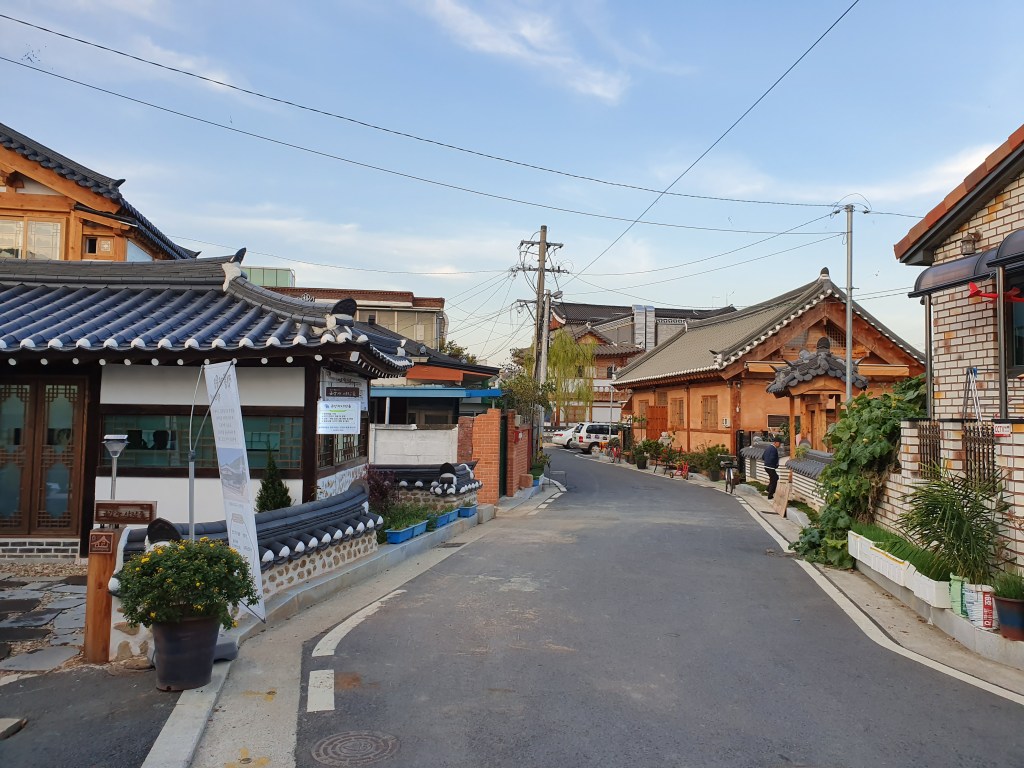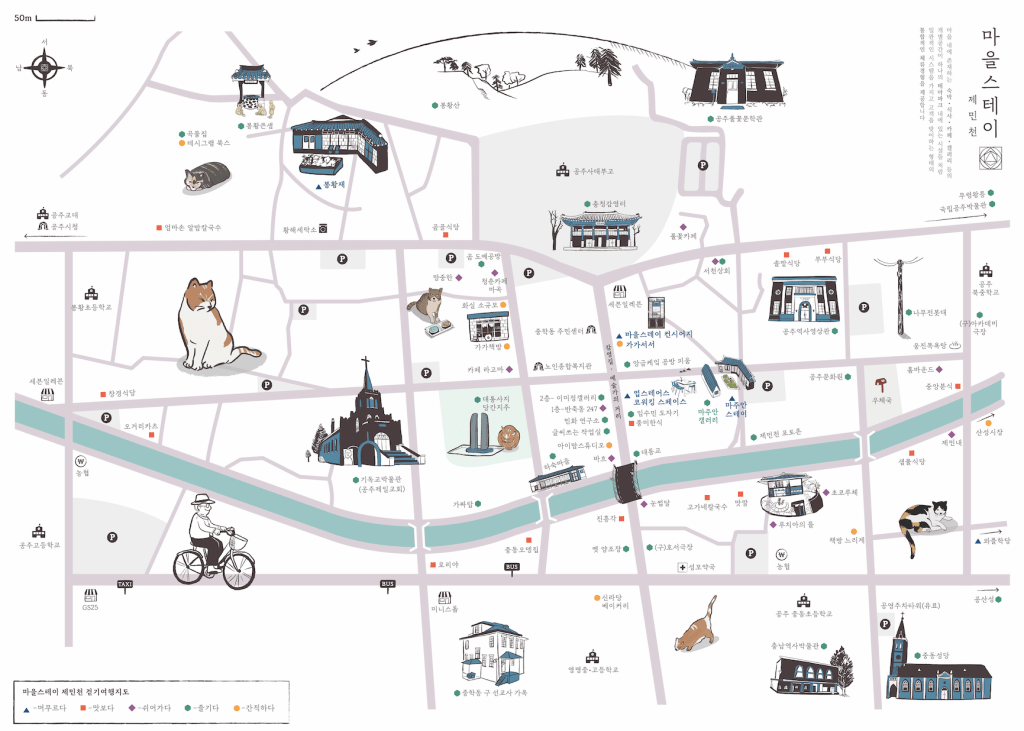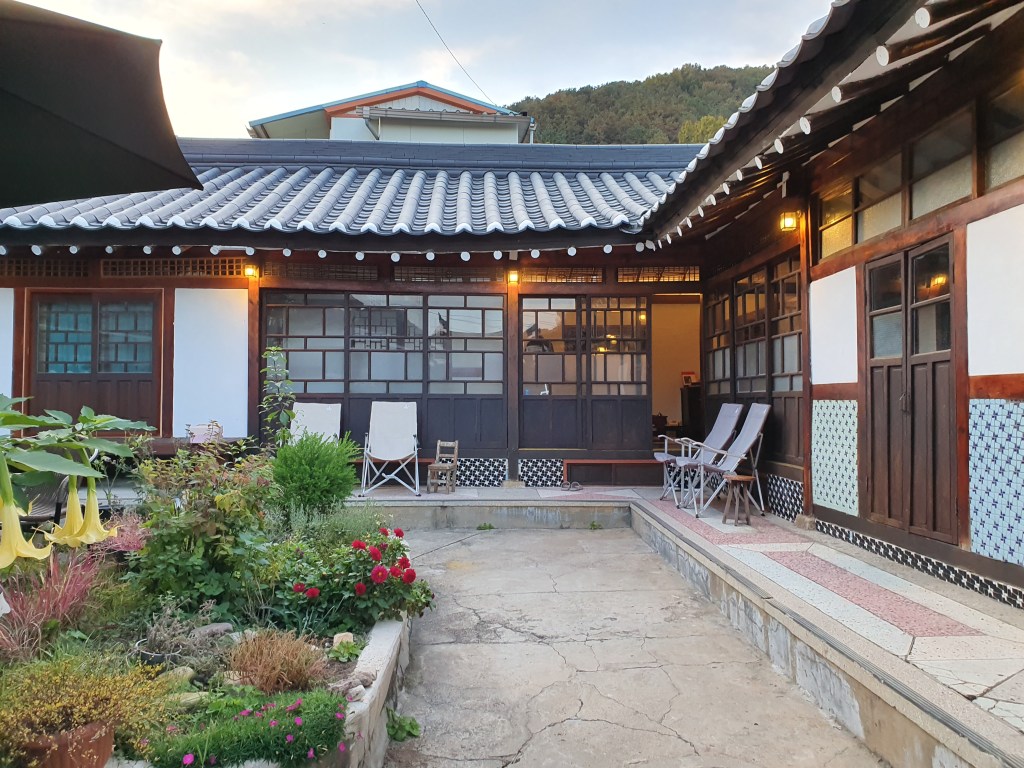After Bong-Hwang-Jae opened, the neighborhood came to life


“When I calculated the money that Airbnb guests spend in the surrounding area of my Airbnb listing in a month, it was about 15 million won per month on average.”
When asked about Airbnb’s economic impact on the neighborhood, an Airbnb host O-Sang Kwon, who runs Airbnb using Hanok in Gongju, Chung-nam province, Korea, explained like this adding that “It was the result of excluding the income of the accommodation.”
O-Sang, who worked at the Gyeonggi Tourism Organization, quit his job in July 2018 and started Airbnb hosting. His Airbnb is a hanok named “Bong-Hwang-Jae”. When asked if he was worried about giving up a good job and becoming an Airbnb host for a living, he explained that it was ok because of his wife’s experience as an Airbnb host for a year from 2015 to 2016.
“I thought I knew both the statistics and the practical issues while working for the Gyeonggi Tourism Organization. In fact, when I closely looked at my wife’s Airbnb, I noticed that there was a huge amount of demand that was completely different from traditional travel. The new demand was not met by the traditional business behavior. I found some people staying for 1-2 weeks, while others stayed for remote working for a week or a month. There have been cases of package merchants from China staying for a long time. Looking at this demand, I thought the travel demand that had deviated from the framework of our traditional thinking has diversified into a form that we did not dare to think of, and that demand was also enormously large.”


Using Airbnb helped him start a business easily. First of all, the guest group itself in the Airbnb platform has significantly lowered the initial barrier to enter this business. Because he didn’t have to be concerned about the marketing.
“It was very convenient because there are lots of people who are using Airbnb all over the world. And I was able to follow Airbnb’s guide which provides the information for running the business. Another advantage of using Airbnb was that I could find the various cases I could refer to. For example, I could analyze other cases of running traditional houses in Korea, as well as in remote places in Thailand, and looked at how they describe their strengths in the platform.”
When he first bought hanok where he runs Airbnb, many people were worried and held back. They pointed out that lodging business can not be succeeded in a general residential area, not near the “Gongsanseong” which is a tourist destination in Gongju.
However, he said, “The power of Airbnb created the property’s unique charm and made itself a travel destination. It allowed me to overcome its geographical weakness.” Moreover, the guests who visit his Airbnb are having a positive effect on the neighborhood as they spend food expenses in the neighborhood. O-Sang said, “We currently have only one restaurant near my listing. If there are one or two more Airbnb listings, it can make someone open a new restaurant.”
After staying at Bong-Hwang-Jae, there were 5 teams of guests who felt the charm of the neighborhood and settled down in Gongju, Korea. One of them opens a small bookstore and is actively working with O-Sang to revitalize the neighborhood. He has also created a shared office called “Upstairs” for Airbnb guests to use for a remote working space. Also this place can help local young entrepreneurs work and interact with each other.
The guests who visit O-Sang’s Airbnb are usually women in their 20s and 30s taking a walk near his listing and looking around pretty cafes and local bookstores. It can be explained as a trend of “living like a local”. O-Sang who is working in the midst of a completely new travel trend, said, “I have a stable income from Airbnb for a living in a small city here.”
“Based on Airbnb, I have been able to work to revitalize the neighborhood. I can see that the neighborhood changes dramatically every year.”
According to the Oxford Economics research, Airbnb supported more than 54,800 jobs and showed a combined contribution to GDP worth 1.91 billion dollars in Korea in 2019.
